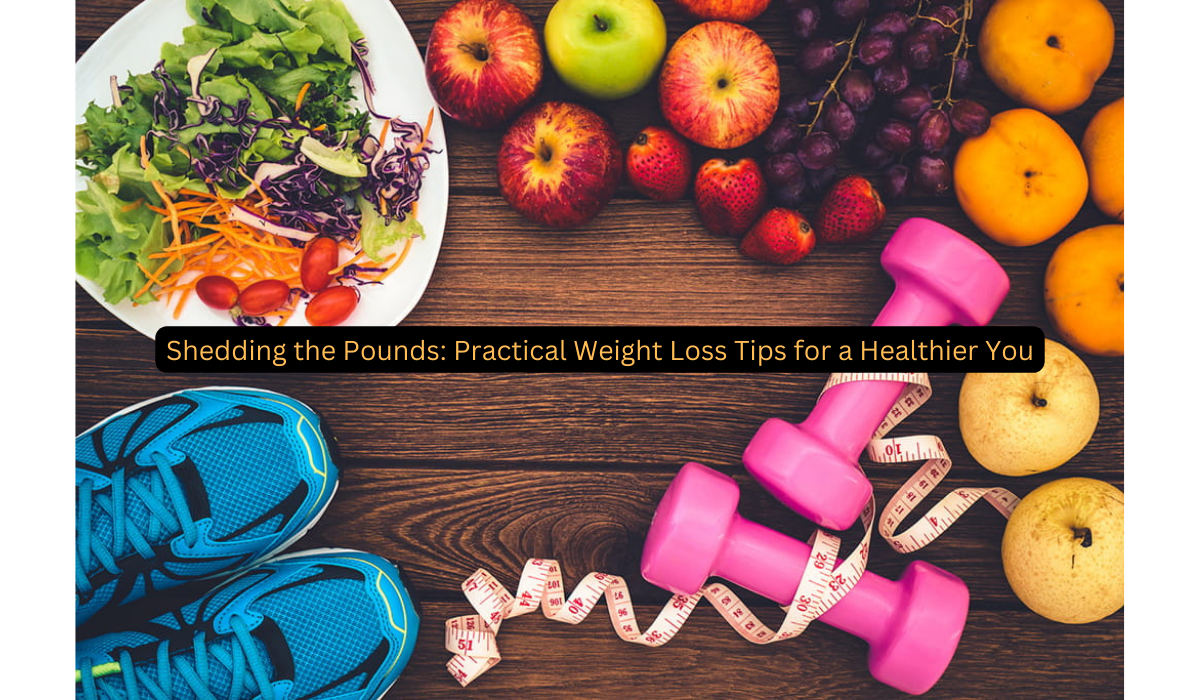Let’s face it, we’ve all been there. Staring at the mirror and wishing those extra pounds would magically disappear. Weight loss can seem like a daunting task, filled with fad diets and unrealistic expectations. But fear not, fellow travelers on the wellness journey! This article unveils practical weight loss tips that can help you shed pounds in a healthy and sustainable way. Imagine feeling energized, confident, and rocking that outfit you’ve been eyeing – all while prioritizing your well-being.
Understanding the Basics: Calories In vs. Calories Out
Weight loss boils down to a simple equation: calories consumed versus calories burned. If you burn more calories than you consume, your body starts dipping into stored fat for energy, leading to weight loss. Think of your body like a bank account. Calories consumed are deposits, and calories burned are withdrawals. Aim for a slight “calorie deficit” to see the numbers on the scale move in the right direction.
Diet Do’s and Don’ts: Fueling Your Body for Success
Food is fuel, and the right choices can make a world of difference. Here are some dietary tips to keep in mind:
Do’s:
- Embrace Whole Foods: Prioritize whole, unprocessed foods like fruits, vegetables, whole grains, and lean protein sources. These foods are packed with nutrients and keep you feeling fuller for longer.
- Portion Control is Key: Even healthy foods can pack a calorie punch. Use smaller plates, measure your portions, and avoid mindless snacking. Imagine your stomach as a small pot, not a bottomless pit.
- Don’t Skip Meals: Skipping meals can disrupt your metabolism and lead to overeating later. Aim for regular meals and healthy snacks throughout the day to keep your energy levels stable and cravings at bay.
- Hydration is Essential: Water is your best friend! Dehydration can sometimes mimic hunger pangs. Drinking plenty of water throughout the day can help you feel fuller and curb cravings.
Don’ts:
- Fad Diets are a No-Go: Extreme calorie restriction or restrictive diets might lead to initial weight loss, but they’re often unsustainable and can be unhealthy. Focus on building healthy habits for long-term success.
- Beware of Liquid Calories: Sugary drinks like sodas or juices are calorie-dense and offer minimal nutritional value. Stick to water, unsweetened tea, or black coffee to quench your thirst.
- Unhealthy Snacking: Ditch the processed snacks loaded with sugar, sodium, and unhealthy fats. Opt for fresh fruits, nuts, or yogurt for healthy and satisfying snacking options.
Exercise: Your Body’s Engine for Change
Diet is crucial, but exercise is the engine that drives weight loss. Here’s how to get moving:
- Find Activities You Enjoy: From dancing to swimming, find physical activities you genuinely enjoy. This will make exercise feel less like a chore and more like a fun way to move your body.
- Start Small and Gradually Increase: Don’t jump into intense workouts if you’re new to exercise. Begin with moderate-intensity activities for 30 minutes most days of the week and gradually increase the duration and intensity as your fitness level improves.
- Incorporate Strength Training: Don’t just focus on cardio. Strength training helps build muscle, which boosts your metabolism and helps you burn more calories even at rest. Think of muscle as your body’s furnace, burning calories even when you’re not actively exercising.
Remember: Consistency is key! Aim for regular physical activity, even if it’s just a brisk walk or a short workout session. Every bit counts!
Mindset Matters: Cultivating a Sustainable Approach
Weight loss isn’t just about physical changes; it’s also a mental journey. Here’s how to cultivate a positive mindset:
- Set Realistic Goals: Don’t aim to lose 20 pounds in a week. Set small, achievable goals that will keep you motivated and celebrate your progress along the way.
- Focus on Progress, Not Perfection: There will be slip-ups. Don’t beat yourself up. Acknowledge them, learn from them, and get back on track. Imagine weight loss as a marathon, not a sprint.
- Embrace Self-Love: Focus on loving and appreciating your body at every stage of your journey. Weight loss is a bonus, but self-love is the ultimate reward.
Conclusion
Weight loss is a journey, not a destination. By incorporating these practical tips into your lifestyle – focusing on whole foods, mindful eating, regular exercise, and a positive mindset – you can shed pounds in a healthy and sustainable way. Remember, it’s not about achieving a specific number on the scale; it’s about feeling your best, having more energy, and building a foundation for long-term health and well-being. So, take the first step today, celebrate your progress, and embrace a healthier, happier you!
Frequently Asked Questions
1. What if I don’t have time for elaborate meal prep or long workouts?
Focus on small, manageable changes. Prepare healthy meals in advance for a few days at a time, or stock up on pre-cut fruits and vegetables for quick and healthy snacks. Start with short bursts of exercise, like a 15-minute walk or bodyweight exercises at home. Every bit counts towards your weight loss goals.
2. I struggle with emotional eating. How can I manage cravings?
Identify your triggers for emotional eating. Mindful practices like meditation or journaling can help manage stress and prevent turning to food for comfort. Find healthy coping mechanisms, like taking a walk or talking to a friend, to address emotions instead of reaching for unhealthy snacks.
3. Is weightlifting necessary for weight loss?
Strength training isn’t mandatory, but it’s highly beneficial. Building muscle mass boosts your metabolism, helping you burn more calories even at rest. Start with bodyweight exercises or light weights and gradually increase the intensity as you get stronger.
4. Can I still enjoy occasional treats on my weight loss journey?
Absolutely! Deprivation can lead to cravings and overeating later. Practice moderation and incorporate occasional treats into your diet. The key is to maintain an overall calorie deficit for weight loss.
5. Should I consult a doctor or registered dietitian before starting a weight loss plan?
Consulting a healthcare professional is always a good idea, especially if you have any underlying health conditions. They can help you create a personalized weight loss plan that aligns with your individual needs and medical history.

